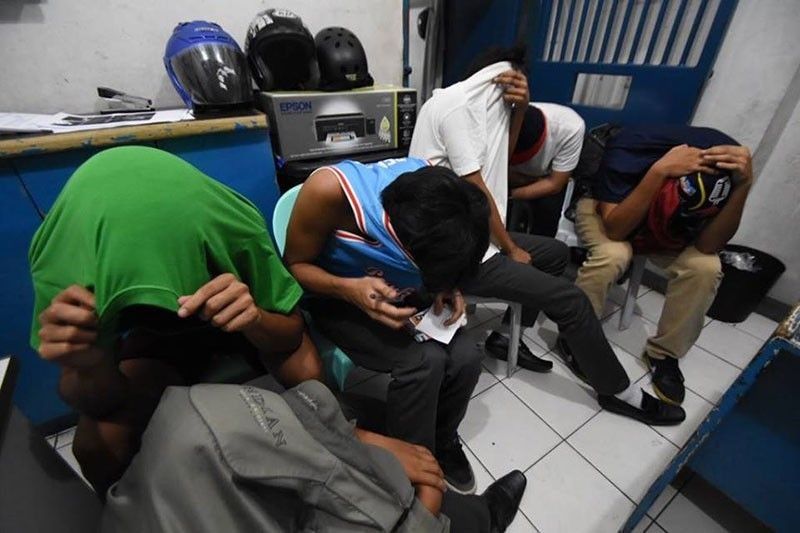Higher penalty for parents of minor offenders sought

MANILA, Philippines — The Senate committee on justice and human rights has recommended raising the penalty for parents whose child 12 years old but below 18 commits serious crimes.
The recommendation is part of the 13-page committee report that also seeks to lower the minimum age of criminal liability from 15 years old to 12.
Under the measure, parents of children who commit serious crimes can spend from six months to six years in prison.
This amends Article 60 of Presidential Decree 603, or the “Child and Youth Welfare Code” imposing parental liability of imprisonment for parents of erring children.
The increased penalties for parental liability is in accordance with the recent pronouncements of President Duterte urging Congress to legislate provisions in the law that imposes punishment for parents of erring children.
Duterte said parents should be “conscious of the criminal accountability” of their children because they too would be held accountable for their children’s offenses.
The committee report, which contained Senate Bill 219 or “An Act Strengthening the Youth Social Welfare Programs and Extending the Scope of Reformation and Rehabilitation of Children in Conflict with the Law,” was submitted for plenary consideration last Wednesday.
Sen. Richard Gordon, chairman of the committee, is expected to present the committee report to the Senate plenary on Monday.
At least 11 senators have already signed the report, with some of them expressing readiness to interpellate or introduce amendments.
It seeks to amend Republic Act 9344, or the “Juvenile Justice and Welfare Act of 2006,” which sets the age of criminal responsibility to 15 years old.
The report proposes that “a child below 12 years of age at the time of the commission of the offense shall be exempt from liability. However, the child shall be subjected to an intervention program pursuant to this Act.”
“A child 12 years of age and above but below 18 years of age shall likewise be exempt from liability and be subjected to an intervention program, unless the child has acted with discernment, in which case such child shall be subjected to the appropriate proceedings in accordance with this Act,” the measure stated.
Those who commit a serious crime would be sent to Juvenile Reformatory Centers, also called Bahay Pag-asa, it added.
These serious crimes involve parricide, murder, infanticide, kidnapping, serious illegal detention where the victim is killed or raped, robbery with homicide or rape, destructive arson, rape or vehicle theft where the driver or occupant is killed or raped, or offenses under Comprehensive Dangerous Drugs Act of 2002 that are punishable by more than 12 years imprisonment.
The Department of Social Welfare and Development (DSWD) will be responsible for building, funding and operating Bahay Pag-asa, allocations for which will be included in the budget of the DSWD in the annual General Appropriations Act.
Under the proposal, every Bahay Pag-asa should have amenities such as gyms, libraries and vocational-technical training shops. There should be programs for alternative learning geared toward values formation, cultural awareness, reading and skills development.
Children who do not pose a risk to the community may be allowed to attend schools outside Bahay Pag-asa, the proposal stated.
They could be released to their parents, foster parents or guardians only upon court order and after a comprehensive study conducted by the local DSWD officer.
The report also stated that children below the age of criminal responsibility, in consultation with local DSWD officer, should be released to the custody of his/her parents, guardians or nearest relative.
“No child under seven years of age shall be separated from the mother, unless the latter is unfit,” the report stressed.
The following children may also be placed in foster care: abandoned, surrendered, neglected, dependent or orphaned; victims of sexual, physical, or any other form of abuse or exploitation; a child with special needs; a child whose family members are temporarily or permanently unable or unwilling to provide the child with adequate care; a child awaiting placement, among others.
- Latest
- Trending





























